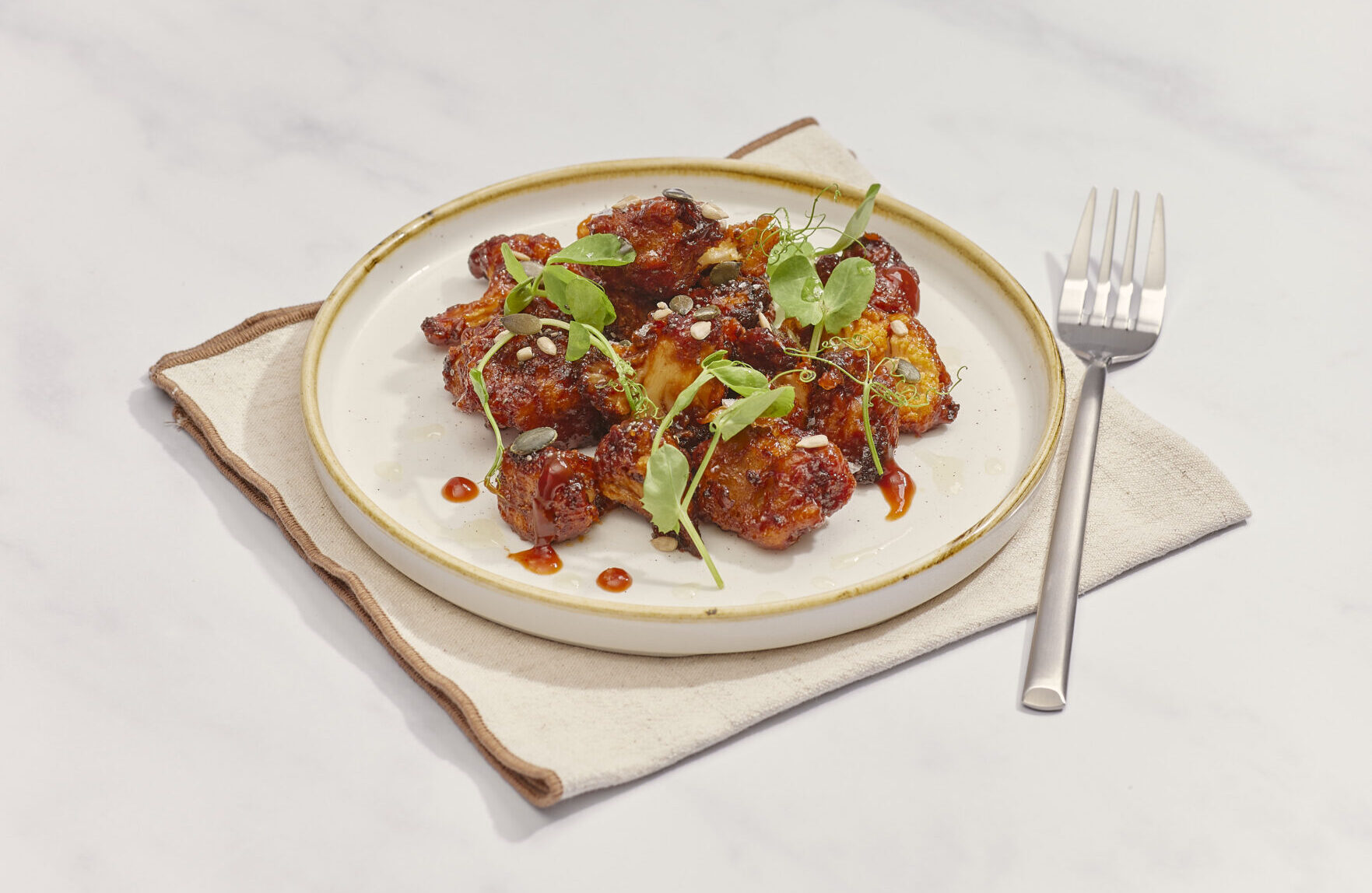Hilton has joined forces with Klimato to measure the carbon impact of food served at its UK hotels, and is devising more eco-friendly meals. Nick Hendry reports
UK consumers have become accustomed to seeing calorie counts on restaurant menus but now guests at Hilton hotels can expect to see emissions information as well.
Since May 2023, more than 30 properties across the country have included these scores for each dish, with more than 1.6kg of CO2 across the lifetime of an item being considered a high-carbon choice.
Guests are informed that these dishes “contribute to increased climate impact”. Hilton claims this rollout to be the biggest carbon-labelling exercise by any UK hotel firm.
Response to the scheme in its first few months has been, says Hilton, largely positive. It reports an increase in popularity of menu items considered low-carbon and positive guest feedback to the labelling system.
This has led to the newly-released autumn menu being designed to feature 85 per cent low and medium-carbon options, with some dishes being altered and others replaced entirely.
Guests looking to tuck into a low-impact meal can order gochujang cauliflower wings to start, followed by a butternut squash risotto or a posh fish finger sandwich. For dessert, they can have salted caramel affogato. The three-course meal will result in a total of 1.2 kg CO2e, which is lower than the average UK meal.
As Hilton continues to respond to guest preferences and look for ways to help guests make more informed choices, some dishes containing items with a higher carbon footprint have been replaced with multiple lower carbon alternatives.
This includes the newly launched chicken, mushroom and tarragon, and celeriac and wild mushroom pies, both of which have a medium carbon footprint instead of high.
The menu’s signature cheeseburger has also been updated with a more climate-friendly version featuring a single patty instead of a double, complemented by smoked cheddar, BBQ relish, ranch dressing and vegetables, leading to a 2.3kg CO2e reduction in the dish’s carbon footprint.
For guests looking to go a step further, data from Klimato has shown that choosing the Plant Burger would result in a reduction of CO2 emissions equal to driving 63km in a car.
“Carbon labelling is an easy way to empower guests to make more informed choices, and we’re delighted to see they’re already embracing these insights – whether that’s by opting for an ultra-low emission dish, or simply reducing the frequency with which they order dishes with a higher carbon footprint.
“As we all continuously look to reduce our impact, every small decision can make a difference, and we’re proud to be leading the way as the first hotel company to introduce and manage carbon labelling on such a scale.”
The company provides software which calculates the impact of each recipe, with this information then being presented on menus using their standardised graphic – a small circle, filled green to represent the amount of carbon emitted by a dish. The lower the green line in the circle, the lower the impact, giving diners an at-a-glance report on their choices.
The system was used at the COP26 conference in Glasgow in late 2021, as Klimato worked with conference catering partners Levy UK and Ireland to grade each item on the menu in just a few weeks.
Klimato can also work with partners to track their emissions over time, spotting trends in customer behaviour and adjusting menus accordingly, as well as partner with gold-standard offsetting firms to balance any unavoidable emissions.
The carbon labelling of menus forms part of Hilton’s wider “Travel with Purpose” programme. The firm states that this strategy will help them to “drive responsible travel and tourism globally” and “create positive environmental and social impact across our operations, supply chain, and communities” as the world continues to address climate change.
This month, it was revealed that Hilton’s “Green Breakfast” initiative – an industry leading pilot across 13 UAE hotels in partnership with Winnow and ne’ma, the UAE national food loss and waste initiative – resulted in a 62 per cent reduction in food waste, serving as a blueprint for food waste management in the hospitality industry.

